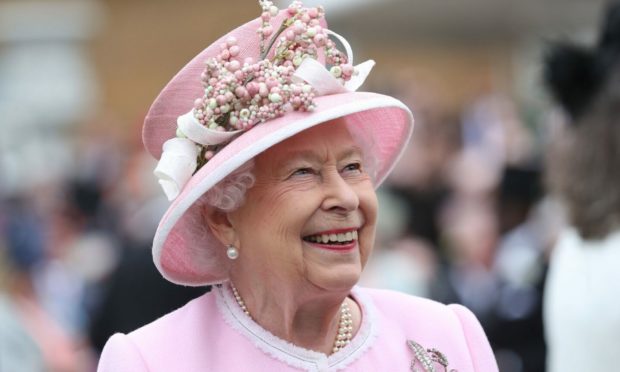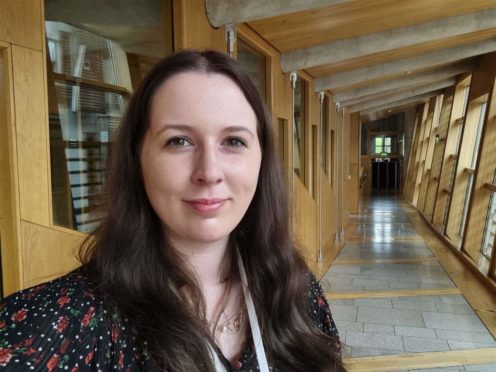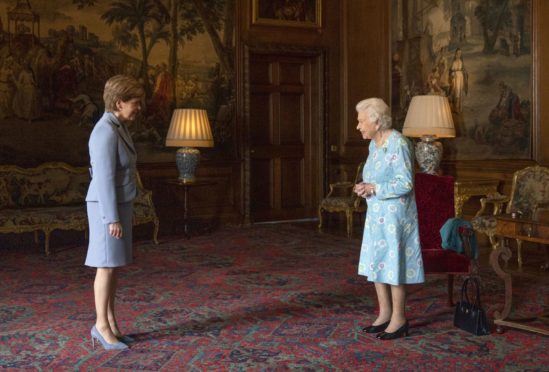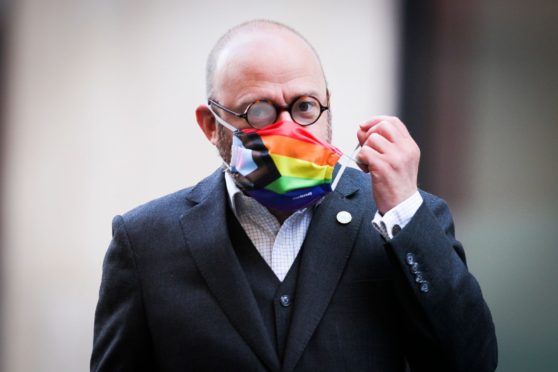Should MSPs pledge allegiance to The Queen? It’s one of the first things they do after being elected and before the can take their seat in Holyrood but a new grassroots campaign is calling for the royal oath to be scrapped.
Ever since the devolved parliament was set up in 1999, MSPs need to declare they will “be faithful and bear true allegiance to Her Majesty the Queen, her heirs and successors”.
After this year’s Scottish Parliament election in May, several MSPs said they were taking the oath under protest, as they believe they should be serving the people of Scotland, not the monarchy.
Any MSPs who refuse to say the oath can’t claim their wages or expenses and could even lose their jobs if they don’t recite the words within two months of being elected.
Now a petition organised by a group called Our Republic is calling for the wording of the oaths and affirmations to be changed so MSPs no longer have to declare allegiance to the queen before they can take up office.
‘It is clear this needs to be changed’, despite few signing online petition
Our Republic is a new group set up to campaign to reduce the power and the influence of the monarchy in Scotland, with the eventual aim of abolishing it altogether.
For their first public campaign, the pressure group has set up a change.org petition calling for MSPs’ pledge of allegiance to the queen to be scrapped.
However for a petition to be considered by Holyrood, it has to be lodged through the Scottish Parliament’s own petition system rather than a non-parliamentary site like change.org.
So far, less than 50 people have signed the change.org petition.
Tristan Gray from Our Republic says the reason they have not used the Scottish Parliament petition system is because they don’t know if the pledge of allegiance is a devolved issue or not – and the Scottish Parliament can only consider petitions regarding devolved issues.
He said: “The display of having MSPs raise protest to swearing something they don’t believe just to carry out what they have been elected to do is a powerful statement.
“It doesn’t sit right with a lot of people so we want this changed and for there to be a step away from unacceptable and undemocratic power in the Scottish Parliament.
“Most of the Greens, three Labour MSPs, Emma Roddick and Nicola Sturgeon on behalf of the SNP all made statements declaring their support for the sovereignty of the people, so we have a situation where a clear majority of MSPs are altering their oath.
Along with the oaths and affirmations today in the Scottish Parliament, a number of MSPs had an additional statement to make pic.twitter.com/Ab6h2bIuii
— Sarah Mackie (@lumi_1984) May 13, 2021
“It is clear this needs to be changed.”
Although Ms Sturgeon and Mr Harvie’s statements were on behalf of the SNP and the Green Party, only 11 out of 129 MSPs chose to make a statement of protest at the wording of the oath.
He added: “The petition is on change.org rather than through the Scottish Parliament because we are not sure if that is the way forward.
“One of the things a petition needs for it to be accepted by parliament is it needs to fall within the powers of the Scottish Parliament and we are not certain that is where the oath lies.
“If this is something that can be changed at parliament, that would be the next step to take but we want to make sure that is the case before raising a petition that way.”
Mr Gray added Our Republic wants to campaign on other issues beyond the pledge of allegiance as well, such as the Queen’s power to veto legislation before it comes into law.
Pledge of allegiance “a farce” says SNP MSP, who supports calls
Emma Roddick, SNP MSP for the Highlands and Islands, says she supports the petition, calling the pledge of allegiance to the monarchy “a farce”.
When she took her affirmation to sit in Holyrood in May, she said she was doing so under protest because her allegiance was with the people of Scotland.
She said: “I took my affirmation under protest because I felt it right that my allegiance is with the people I am there to represent and who elected me, rather than the monarchy.
“It does undermine our legitimacy to start off having to declare our allegiance to the monarchy.
“I would like to see it changed, I don’t think it is a necessary thing that we have to do.
It would be nice if future MSPs didn't have to swear in under protest… Happy to support @OurRepublicScot's petition 👊 https://t.co/Rr81Wxqdpy
— Emma Roddick MSP (@Emma_Roddick) July 11, 2021
“I certainly hope the folk we are elected to represent would prefer I put them first instead of the monarchy.
“Nicola Sturgeon herself when she took her oath clarified that the Scottish people are sovereign and we are here to serve them – that is what the SNP believes.
“It is a bit of a farce if folk immediately declare allegiance to her majesty instead of the people and it sets the wrong tone to me.
“Having people taking the oath or affirmation under protest in order to serve the people is a difficult thing to rationalise.”
Abolishing pledge only “a start” to having an elected head of state, say Greens
The Scottish Greens say the petition by Our Republic “would be a start”, but say they would like to go even further by having an elected head of state in an independent Scotland rather than the monarchy.
When taking their oaths and affirmations, party co-leader Patrick Harvie said he wanted to emphasise the party’s allegiance is with the people who elected them, and added: “We look forward to the day when they can choose their own elected head of state.”
Mr Harvie added: “Scottish Green MSPs are clear that we make our oaths and affirmations under protest so that we are able to take our seats and serve the public.
“The Our Republic proposal to change the text of the oath and affirmation would be a start, but ultimately we would like to see Scotland shake off these undemocratic traditions by having an elected head of state and become a normal European country.”




